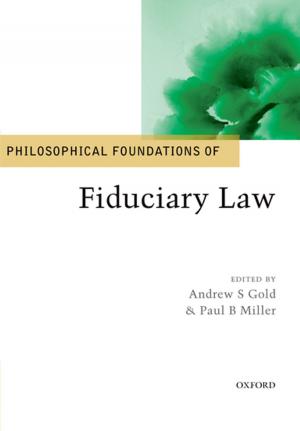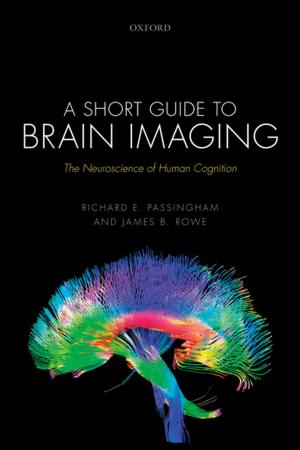Psyche and Ethos
Moral Life After Psychology
Fiction & Literature, Literary Theory & Criticism, Theory, Nonfiction, Health & Well Being, Psychology| Author: | Amanda Anderson | ISBN: | 9780192550910 |
| Publisher: | OUP Oxford | Publication: | March 21, 2018 |
| Imprint: | OUP Oxford | Language: | English |
| Author: | Amanda Anderson |
| ISBN: | 9780192550910 |
| Publisher: | OUP Oxford |
| Publication: | March 21, 2018 |
| Imprint: | OUP Oxford |
| Language: | English |
We live in a psychological age. Contemporary culture is saturated with psychological concepts and ideas, from anxiety to narcissism to trauma. While it might seem that concern over psychological conditions and challenges is intrinsically oriented toward moral questions about what promotes individual and collective well-being, it is striking that from the advent of Freudian psychoanalysis in the late nineteenth-century up to recent findings in cognitive science, psychology has posed a continuing challenge to traditional concepts of moral deliberation, judgment, and action, all core components of moral philosophy and central to understandings of character and tragedy in literature. Psyche and Ethos: Moral Life After Psychology explores the nature of psychology's consequential effects on our understanding of the moral life. Using a range of examples from literature and literary criticism alongside discussions of psychological literature from psychoanalysis to recent cognitive science and social psychology, this study argues for a renewed look at the persistence of moral orientations toward life and the values of integrity, fidelity, and repair that they privilege. Writings by Shakespeare, Henry James, and George Eliot, and the powerful contributions of British object relations theorists in the post-war period, help to draw out the fundamental ways we experience moral time, the forms of elusive duration that constitute loss, grief, regret, and the desire for amends. Acknowledging the power and necessity of psychological frameworks, Psyche and Ethos aims to restore moral understanding and moral experience to a more central place in our understanding of psychic life and the literary tradition.
We live in a psychological age. Contemporary culture is saturated with psychological concepts and ideas, from anxiety to narcissism to trauma. While it might seem that concern over psychological conditions and challenges is intrinsically oriented toward moral questions about what promotes individual and collective well-being, it is striking that from the advent of Freudian psychoanalysis in the late nineteenth-century up to recent findings in cognitive science, psychology has posed a continuing challenge to traditional concepts of moral deliberation, judgment, and action, all core components of moral philosophy and central to understandings of character and tragedy in literature. Psyche and Ethos: Moral Life After Psychology explores the nature of psychology's consequential effects on our understanding of the moral life. Using a range of examples from literature and literary criticism alongside discussions of psychological literature from psychoanalysis to recent cognitive science and social psychology, this study argues for a renewed look at the persistence of moral orientations toward life and the values of integrity, fidelity, and repair that they privilege. Writings by Shakespeare, Henry James, and George Eliot, and the powerful contributions of British object relations theorists in the post-war period, help to draw out the fundamental ways we experience moral time, the forms of elusive duration that constitute loss, grief, regret, and the desire for amends. Acknowledging the power and necessity of psychological frameworks, Psyche and Ethos aims to restore moral understanding and moral experience to a more central place in our understanding of psychic life and the literary tradition.















